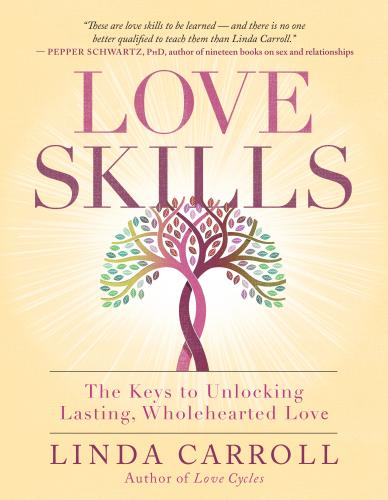Results
Add up your total score for each section. Whichever section you have the highest score in represents the stage you are probably in. If you receive similar scores for more than one section, then you may be in between stages.
The next chapter will guide you through what to do now that you know which stage you’re in.
Can Each Person in a Couple Be in a Different Stage?
Remember, couples experience the stages individually; one person might be in The Merge while the other is in Doubt and Denial. Individuals themselves may fluctuate between stages close to one another. For example, people may go back and forth between the first two stages, fluctuating between rapture and denial because they’re reluctant to let go of the promise of perfect love. People who’ve reached the fifth stage can fall back into The Merge, and then go through the difficult power struggle stages before eventually getting back to Wholehearted Love.
Right now it is important for you to keep this discussion positive. If either of you feels resistant or tense while discussing your relationship stage, let it go for now. As you work your way through Love Skills, you will learn some new ways to talk and listen, so you can revisit this later on when you have learned more about sharing together.
In real love you want the other person’s good. In romantic love, you want the other person.
— MARGARET ANDERSON, founder, editor, and publisher of The Little Review
One of the greatest gifts we can give ourselves is mindfulness. To be mindful means to gently bear witness to ourselves in the moment — physically, mentally, emotionally, and spiritually. Too often we’re so swept up in what’s happening to us, how we feel about it, and what to do to change it that we fail to fully experience these internal currents. Consequently, we react without real awareness of what’s actually driving our choices. When we learn to observe our feelings, thoughts, and experiences without reacting to them — and without trying to judge, analyze, or deny them — we become less attached to our dramas and less swept up in our moods. We are more able to take a step back and make the wisest possible decisions that blend heart, head, and instinct.
Now that you’re aware of which stage of the Love Cycles you’re in, this chapter offers you specific focus areas for surviving and navigating each stage. This process will require constant mindfulness. Go slowly in order to avoid reacting. Practice a more thought-out, slower response while you look at the stage of relationship you may be currently experiencing. I recommend you follow these steps:
1.Read the material on each stage in the preceding chapter.
2.Go through the suggestions for the stage you are in. Circle or underline the suggestions that apply to you. You should also read through the other stages as well, so you’re prepared for when you shift to another stage and understand what your partner is going through if he or she is in a different stage than you are.
3.Think about how you might implement the ideas you’ve underlined. Commit to starting with the ones that are easiest for you.
4.Later, add some of the more challenging ones, which I call stretches.
Stage One, The Merge: Do Not Trust Only Your Heart
Beware of the fantasy of permanent bliss that this stage wraps you in. The first stage of love is perhaps the most euphoric and sensation-intense of them all. But that spectacular spike in feel-good neurochemicals can overpower common sense. The main problem people face in this stage is believing their feelings are the true and lasting barometer for the relationship. People ignore red flags, differences, and plain old logic. (“It doesn’t matter that he’s had seven wives, doesn’t speak to any of his eleven children, and can’t hold down a job! I love him. Plus, he’s changed. He promises our relationship is forever.”)
In spite of Western culture’s message that “all you need is love,” touted in every imaginable media, this is a time when you need to access your rational self as much as your emotional self.
Here’s your Stage One to-do list:
1.Be mindful of your heightened emotions. By all means, enjoy this stage to the fullest — this is the stuff that makes courtship so delightful and intriguing. There’s no need to forgo these joys. Just be aware that you’re in a trance — a victim of Cupid’s magic potion. Take time to step back and observe your emotions and behaviors; ask yourself whether they’re objectively rational. Ask a trusted friend for a candid opinion about your relationship. Awareness is key. (Journaling is a great way to foster this mindfulness.)
2.Don’t make any permanent moves. Because you’re not in a rational state of mind, you may regret moving in, getting engaged, or making big joint purchases with your partner. Wait a while — I recommend a year or two — until the haze of this stage has faded.
3.Tell your partner you need to go slow in making major decisions. Pay close attention to your partner’s reaction. Is it respectful, or does your partner push you in a particular direction?
4.Actively question whether this person is the best match for you. Investigating your new relationship in this way doesn’t mean you’re sabotaging it, nor does it make you a doubtful, wavering, or uncaring person. It simply keeps you grounded and helps you make decisions
